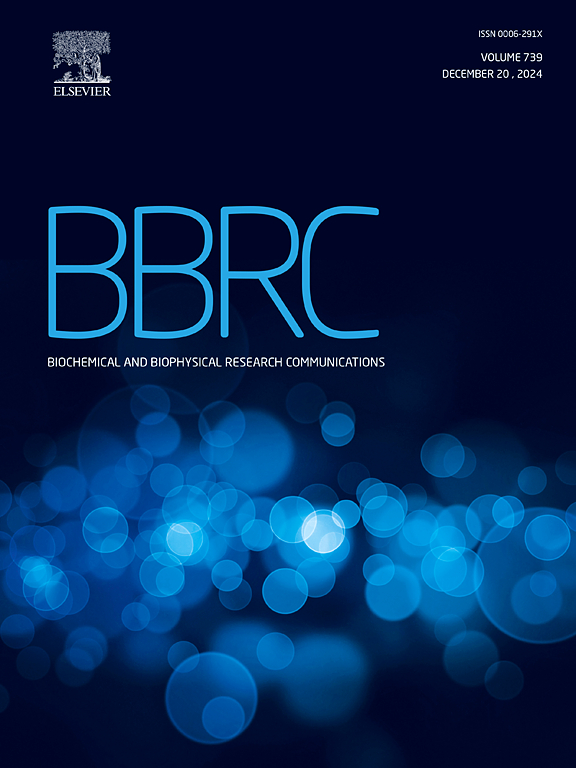Edible ginseng-derived exosomes as drug delivery vehicles reduce the dose and improve the anti-cancer effect of CDDP
IF 2.5
3区 生物学
Q3 BIOCHEMISTRY & MOLECULAR BIOLOGY
Biochemical and biophysical research communications
Pub Date : 2025-03-17
DOI:10.1016/j.bbrc.2025.151658
引用次数: 0
Abstract
Nanotechnology and nanomaterials have emerged as promising tools for the delivery of anti-tumor drug cisplatin (CDDP). However, concerns exist regarding potential toxicity and cost-effectiveness, limiting their clinical applications. In contrast, plant-derived exosomes (PDEs), as natural nanovesicles, offer significant advantages as drug delivery carriers due to their large-scale production, biocompatibility, and ability to efficiently transport therapeutic drug across cellular barriers. In this work, we established a ginseng-derived exosome (G-Exo)-based CDDP delivery system (G-CDDP) and evaluated its anti-tumor efficacy both in vitro and in vivo. The results demonstrated that G-CDDP effectively targeted tumor site, inhibiting the proliferation and migration and promoting apoptosis in U-87MG tumor cells. Notably, the amount of CDDP in G-CDDP required for achieving the same cytotoxic effect on tumor cells was 12.66 times lower than that of free CDDP. In U-87MG tumor-bearing mice, G-CDDP effectively targeted tumor sites and exhibited significant therapeutic effect. Collectively, these findings highlight the potent anti-tumor activity of G-CDDP at reduced CDDP dosage, positioning it as a promising and efficient alternative to conventional drug treatments in clinical settings.

求助全文
约1分钟内获得全文
求助全文
来源期刊
CiteScore
6.10
自引率
0.00%
发文量
1400
审稿时长
14 days
期刊介绍:
Biochemical and Biophysical Research Communications is the premier international journal devoted to the very rapid dissemination of timely and significant experimental results in diverse fields of biological research. The development of the "Breakthroughs and Views" section brings the minireview format to the journal, and issues often contain collections of special interest manuscripts. BBRC is published weekly (52 issues/year).Research Areas now include: Biochemistry; biophysics; cell biology; developmental biology; immunology
; molecular biology; neurobiology; plant biology and proteomics

 求助内容:
求助内容: 应助结果提醒方式:
应助结果提醒方式:


